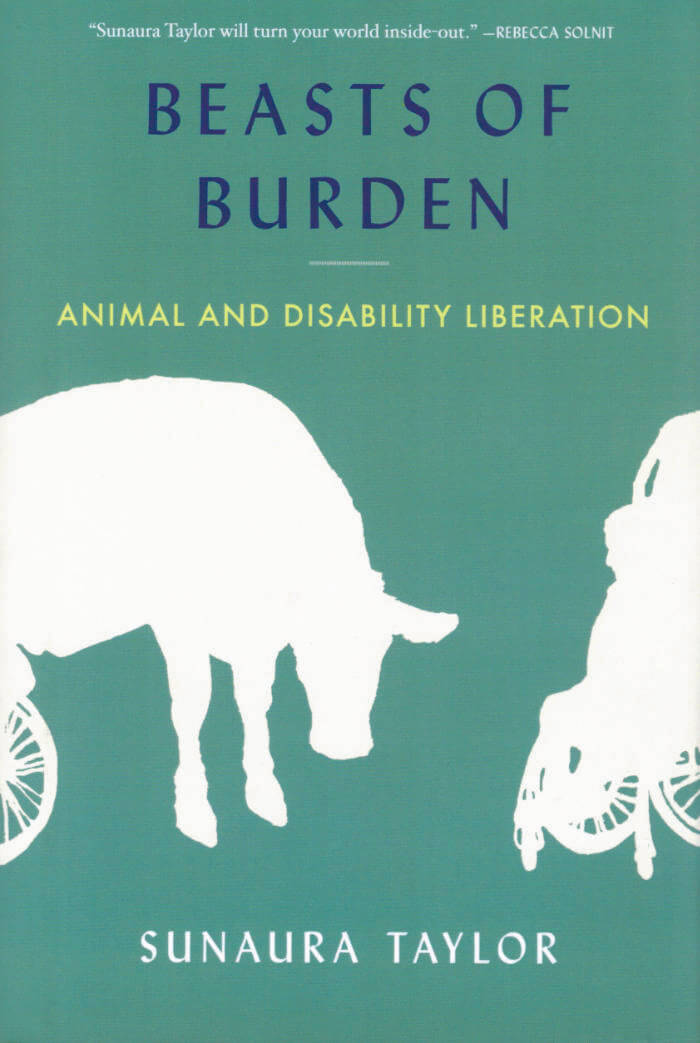
Beasts of Burden: Animal and Disability Liberation
A beautifully written, deeply provocative inquiry into the intersection of animal and disability liberation, and the debut of an important new social critic.
How much of what we understand of ourselves as "human" depends on our physical and mental abilities, how we move (or cannot move) in and interact with the world? And how much of our definition of "human" depends on its difference from "animal"?
Drawing on her own experiences as a disabled person, a disability activist, and an animal advocate, author Sunaura Taylor persuades us to think deeply, and sometimes uncomfortably, about what divides the human from the animal, the disabled from the nondisabled, and what it might mean to break down those divisions, to claim the animal and the vulnerable in ourselves, in a process she calls "cripping animal ethics."
Beasts of Burden suggests that issues of disability and animal justice—which have heretofore primarily been presented in opposition—are in fact deeply entangled. Fusing philosophy, memoir, science, and the radical truths these disciplines can bring, whether about factory farming, disability oppression, or our assumptions of human superiority over animals, Taylor draws attention to new worlds of experience and empathy that can open up important avenues of solidarity across species and ability. Beasts of Burden is a wonderfully engaging and elegantly written work, both philosophical and personal, by a brilliant new voice.




